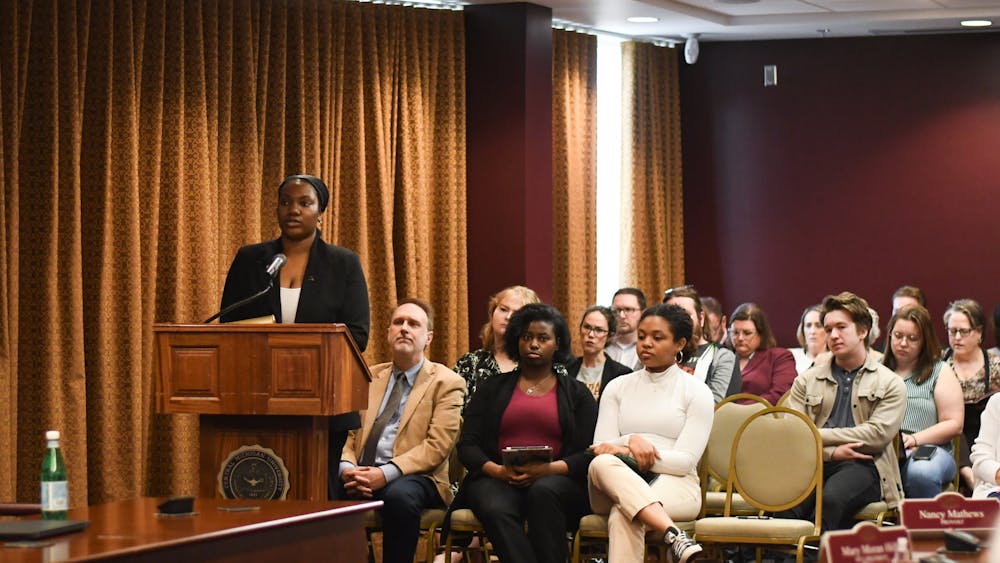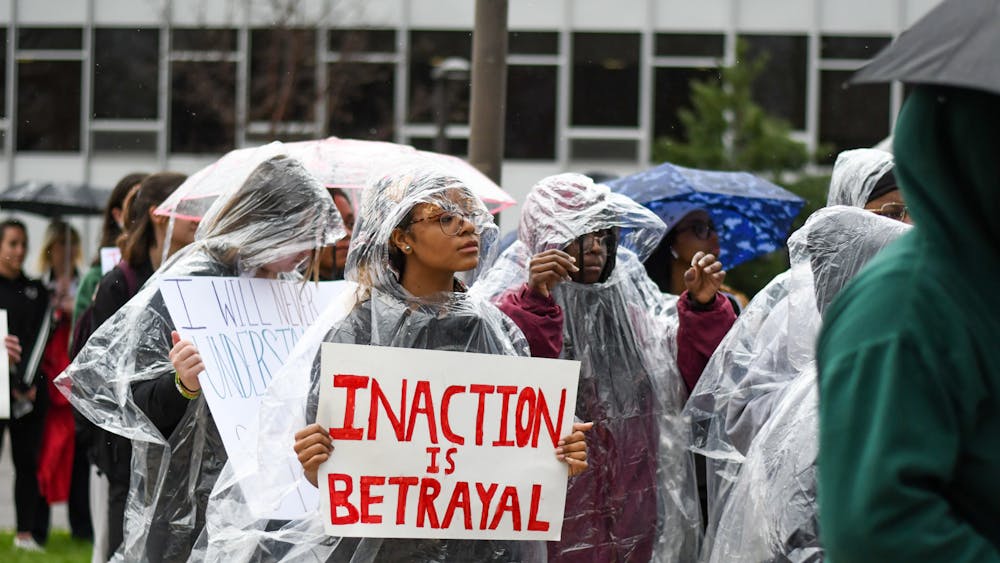Griffin Forum addresses human trafficking problem in Michigan
Right now, the Michigan State Police has roughly 1,000 ongoing human trafficking investigations, said Detective Sergeant Edward Price at a human trafficking forum Monday night.
The Griffin Forum “HUMAN TRAFFICKING! Not in My Neighborhood?” addressed the current prominence of trafficking issues and how these circumstances occur closer to home than most Michiganders would like to believe.
The College of Humanities and Social and Behavioral Sciences, the Department of Political Science and the Robert and Marjorie Griffin Endowed Chair in American Government sponsors a Griffin forum every semester. Each forum lectures on a different social, political, environmental or other type of current and important issue.
More than 100 people attended the Spring 2017 forum at 7 p.m. on March 20 in the Powers Ballroom to hear the perspective of three panelists regarding human trafficking. Alongside Price, two others sat on the panel; Michigan State Senator Judy Emmons and Anny Donewald, the founder of Eve’s Angels, a nonprofit that assists women stuck in the sex industry.
JoEllen DeLucia, a CMU English professor and chairperson of the Women and Gender Studies program, moderated the conversation.

Because the panelists represented different types of organizations concerned with trafficking issues, they offered diverse perspectives on the issue based on their varying personal experiences.
“(The panelists) connections gave some really interesting insight,” said Davison junior Victoria Hopkins, an attendee at the event. She said the way discussion dove into detail about the effects of human trafficking was valuable.
s a key message, the panel emphasized the importance of eradicating the stereotypes and negative stigma associated with victims.
Emmons said anyone could be a survivor, regardless of ethnicity or socioeconomic status.
“You can’t define what it looks like in terms of ‘this ethnicity’ or ‘this demographic,’” Donewald agreed. “The base of all (human trafficking) is greed. People become the objects.”
Human trafficking is an epidemic and it persists because the community doesn’t understand the victims, Donewald said.
“There’s no little girl that wakes up in the third grade and says ‘I want to be a hooker when I grow up.’” she continued. “If there is a woman --- forced or unforced --- who is selling her body for a living, it isn’t because that’s what she decided to do.”
Survivors can also come from everywhere, Emmons added, explaining how trafficking happens all over the world and state of Michigan.
Media portrayal of the crime, such as in films and television shows, usually doesn’t match the reality of trafficking, Price said.
“It’s girls being blackmailed, tricked into (trafficking),” he explained. “Or, violence is being used.”
All the panelists concurred in considering the societal tendency to judge trafficking victims a tragedy. Instead of blaming the harmed, efforts must be made to hear their voices and help.
“You have the power to be the change,” Donewald said. “Everyone has a passion that makes them get up in the morning. Use that passion to make a change.”




